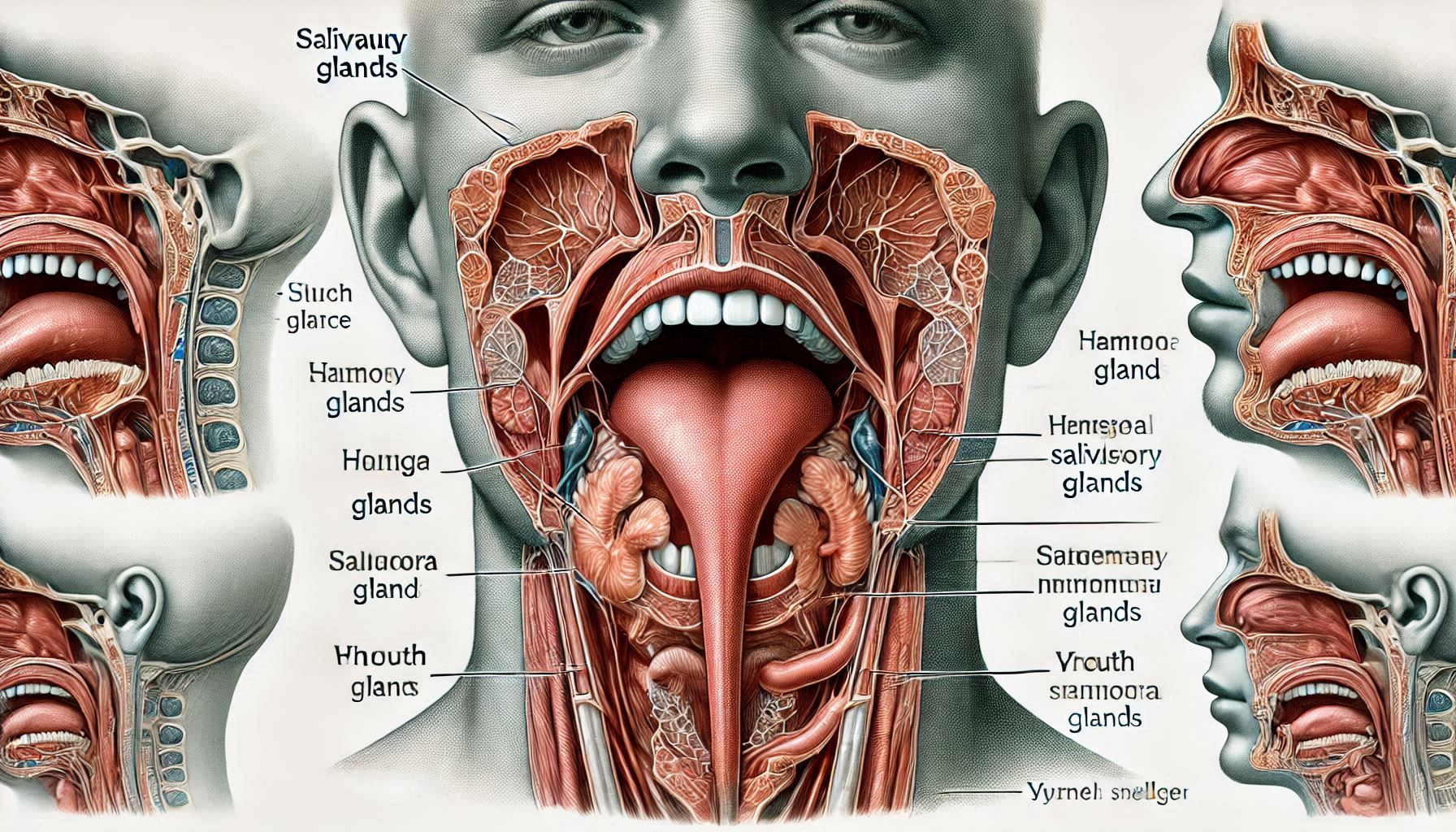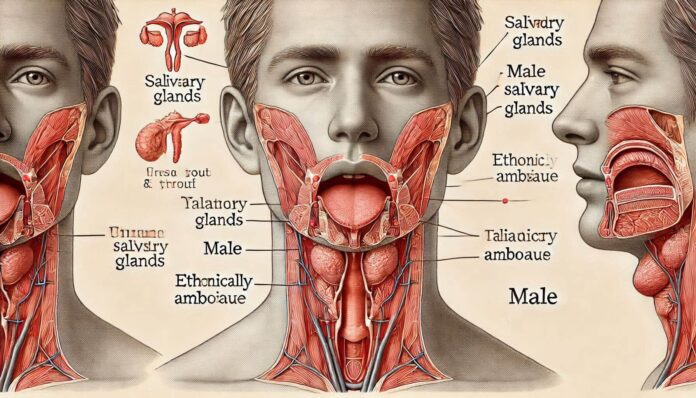Cannabis use is becoming increasingly common as legalization expands across the globe, leading to a surge of interest in understanding how the body metabolizes THC (tetrahydrocannabinol), the psychoactive compound in marijuana. One frequently asked question is: “How long does THC stay in saliva glands?” This query is especially relevant for those concerned about drug testing and the implications of recent cannabis use. This article explores the science behind THC in saliva glands, detection times, influencing factors, and strategies to reduce detection windows potentially.
The Science Behind THC in Saliva
When cannabis is consumed—whether through smoking, vaping, or edibles—THC enters the body and interacts with various systems. Inhaled THC quickly enters the bloodstream and saliva through the mucous membranes, while ingested THC is metabolized through the digestive system.

Unlike THC in blood or urine, which measures metabolized compounds, saliva tests detect the presence of unmetabolized THC. This makes saliva tests highly effective for determining recent cannabis use, typically within hours to a few days, depending on the frequency of consumption.
Typical Detection Times for THC in Saliva Glands
The amount of time THC remains detectable in saliva depends on various factors, including the frequency and method of cannabis use. Below is a general guideline:
- Occasional Users (1-2 times per week): THC can be detected in saliva for up to 24-72 hours after last use.
- Regular Users (3-4 times per week): Detection can last up to 7 days.
- Heavy Users (daily or multiple times per day): THC may remain in the saliva glands for 10-30 days or longer in extreme cases.
It is important to note that these timelines are averages and can vary significantly based on individual factors.
Factors Influencing THC Retention in Saliva Glands
Several factors influence how long THC stays in saliva glands, including:
- Frequency of Use
- Frequent cannabis users have higher THC accumulation in their system, leading to longer detection times.
- Dosage and Potency
- Consuming high-potency cannabis products or large doses increases THC levels, prolonging retention in saliva.
- Metabolism Rate
- Individuals with faster metabolisms may process and eliminate THC more quickly than those with slower metabolic rates.
- Hydration Levels
- Staying hydrated can help flush THC from the saliva glands, potentially reducing detection windows.
- Oral Hygiene
- Proper oral hygiene practices, such as brushing teeth and using mouthwash, can help reduce THC levels in saliva.
- Method of Consumption
- Smoking or vaping introduces THC directly into the mouth and saliva glands, whereas edibles may result in lower initial THC levels in saliva.
THC Saliva Testing: What You Need to Know
Saliva drug tests are becoming more common due to their non-invasive nature and ability to detect recent cannabis use. Here are some key points about THC saliva testing:
- Test Sensitivity: Most saliva tests can detect THC at levels as low as 1-10 nanograms per milliliter (ng/mL).
- Time Frame: Saliva tests are most effective at detecting THC use within the first 24-72 hours after consumption.
- Accuracy: While saliva tests are reliable, certain factors like eating, drinking, or using oral products can influence results.
- Legal Implications: In many jurisdictions, saliva testing is used for roadside drug testing to assess impairment in drivers.
Tips to Reduce THC Detection in Saliva
If you are concerned about an upcoming saliva drug test, here are some strategies that may help reduce detection times:
- Stay Hydrated
- Drink plenty of water to help flush THC from your system.
- Practice Good Oral Hygiene
- Brush your teeth thoroughly, floss, and use an antibacterial mouthwash to reduce THC residue in your saliva.
- Chew Gum or Eat Mints
- Chewing gum or consuming mints may stimulate saliva production, potentially diluting THC levels.
- Avoid Cannabis Use
- Abstain from cannabis for at least 24-72 hours (or longer for frequent users) before a test.
- Use Detox Products
- Certain detox mouthwashes claim to lower THC levels in saliva temporarily. While not foolproof, they may provide additional protection.
Frequently Asked Questions (FAQs)
1. Can secondhand cannabis smoke affect saliva test results?
- Secondhand smoke exposure is unlikely to result in detectable THC levels unless exposure is prolonged and in a confined space.
2. Are there natural ways to speed up THC elimination from saliva?
- Drinking water, practicing good oral hygiene, and eating a healthy diet may help, though no method guarantees rapid elimination.
3. How accurate are saliva drug tests?
- Saliva tests are highly accurate for detecting recent cannabis use but may produce false positives in rare cases due to cross-reactivity with other substances.
4. Can eating or drinking before a saliva test affect the results?
- Yes, consuming food or beverages can dilute THC levels in saliva and potentially impact test results.
The Importance of Understanding THC Detection Times
Understanding how long THC stays in saliva glands is crucial for various scenarios, including:
- Workplace Testing: Many employers require drug testing as a condition of employment.
- Roadside Testing: Some jurisdictions conduct saliva tests to assess driver impairment.
- Personal Awareness: Knowing detection times can help individuals make informed decisions about cannabis use.
Conclusion
The question, “How long does THC stay in saliva glands?” does not have a one-size-fits-all answer. Detection times depend on numerous factors, including frequency of use, metabolism, and oral hygiene practices. For occasional users, THC may be detectable for up to 72 hours, while heavy users may face longer detection windows of 10 days or more.
If you are subject to saliva drug testing, understanding the variables that influence THC retention can help you prepare accordingly. Always consider abstaining from cannabis use if you anticipate a drug test, as this is the most reliable way to ensure a negative result.
By staying informed about THC metabolism and detection methods, you can navigate cannabis use responsibly while minimizing potential risks.
You may also read: Who is Otelia Cox? A Comprehensive Guide



